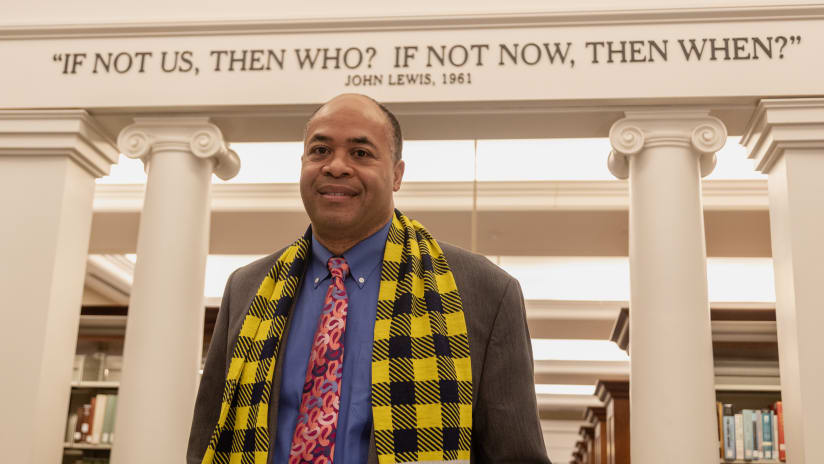Nashville’s history IS Black history.
From the city’s iconic spaces and institutions to the everyday streets we all walk, Black history is everywhere. Nashville historian David Ewing, a ninth-generation Nashvillian who has previously served on over 30 boards and commissions in the city, tells that story every day on his tours and on his social media.
“Nashville’s history is rich for all of us,” Ewing said. “If you're a newcomer to Nashville or you just don't know as much about it, this is a month where you could learn more about it through videos, through books and tours. We have a National African American Music Museum on John Lewis Way. We have other institutions like Fisk University, which is the oldest college in the Athens of the South. Tennessee State University, where Wilma Rudolph graduated from, and she won three Olympic gold medals. She was the first American woman to win three gold medals in one Olympics. Oprah Winfrey graduated from Tennessee State University and then got her first jobs in radio and television right here in Nashville. Our story of African American history is a story of American history.”
Perhaps one of the most notable story of Black history in Nashville came during the Civil Rights Movement in the 1960s. A group of a few hundred students staged sit-ins at segregated lunch counters along Fifth Avenue. On February 27, 1960 the sit-ins took a turn. And in that dark moment, a Civil Rights icon began his rise to prominence in American politics.
“They sat there for hours and hours and were refused service, and then local white youths came and beat them up,” Ewing said. “They pushed them off the lunch counter, pushed them down the stairs, kicked them, called them names, spat on them. When the Nashville Police Department came, they arrested the peaceful protesters, not the people that were attacking them.”
“And on that day, a young Fisk student named John Lewis got into his first good trouble. He was arrested, and that was his first of almost 50 arrests in his lifetime speaking up about injustices. His training taught him well and carried him to Montgomery and the Freedom Rides in Mississippi and to the Edmund Pettus Bridge in Selma, Alabama on Bloody Sunday, where he was almost beaten to an inch of his life. But John Lewis never gave up, and it all started here in Nashville.”
While Lewis left Nashville in the years following to take his fight for justice to the national stage, his legacy still lives on in Music City. And when Nashville SC opens up its 30,000-seat stadium on May 1, it will be a home for Nashvillians of all races, religions and creeds.
“Sports and entertainment bring people together like no other kind of event, and Nashville SC will have one of the most diverse fanbases of any of our sports teams here in Middle Tennessee,” Ewing said. “You will have people of all different religions and races and genders, all celebrating this team from the start. And the great thing about bringing people together for a wonderful event is that people can celebrate. That's what the Civil Rights Movement was about. Everyone wants to enjoy the same things in the same space, whether it be a movie theater, a lunch counter, riding on a bus, swimming in a pool, but we should all be able to sit side by side and cheer on and just have fun as Nashvillians. This wonderful project is going to last for generations and generations and hopefully Nashvillians of all walks of life will appreciate the work that went into having an integrated city.”















